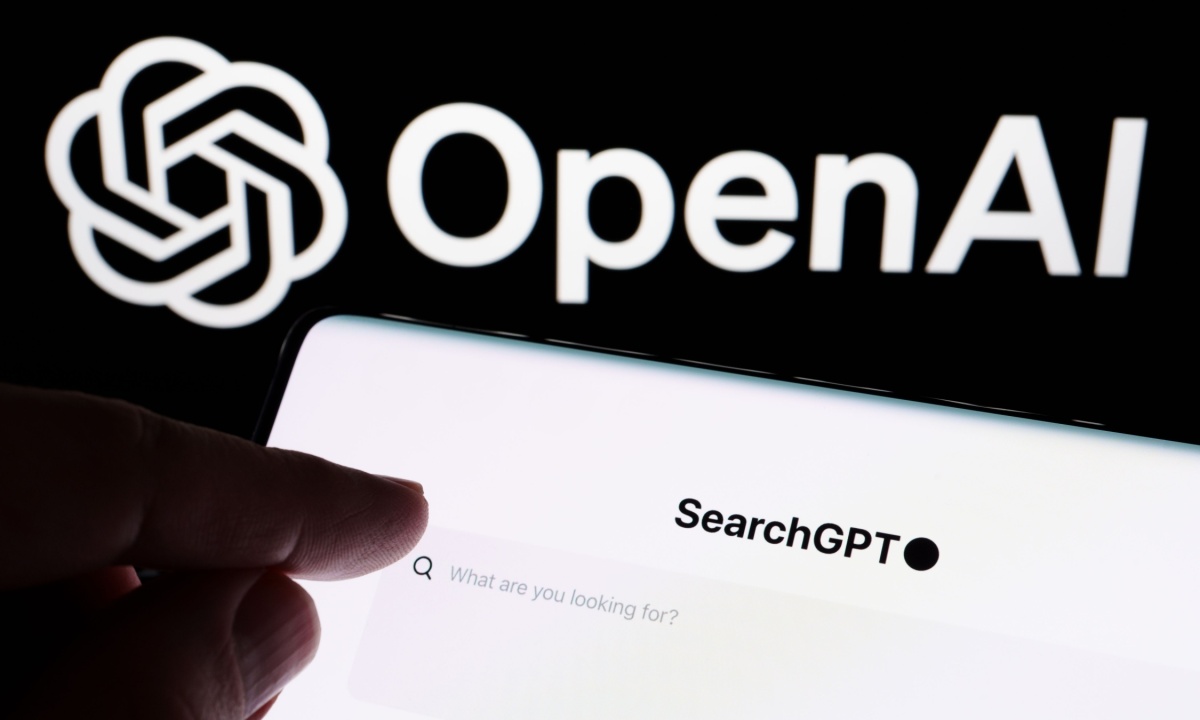Jobs
A Quieter Back-To-Office Season, Outsmart The Resume Bots And AI Isn’t Cutting Many Jobs—Yet

This is the published version of Forbes’ Future of Work newsletter, which offers the latest news for chief human resources officers and other talent managers on disruptive technologies, managing the workforce and trends in the remote work debate. Click here to get it delivered to your inbox every Monday!
This September, the push for back-to-office mandates has been more subdued.
getty
It’s the Monday after Labor Day, and if it seems like the calls for returning to the office sound quieter this year, that’s because they are. Over the past four years, Labor Day has been a common milestone for offices to launch back-to-office mandates, as children return to school across the country and summer travel comes to an end.
My colleague Maria Gracia Santillana Linares spoke with experts who follow hybrid work policies, and they confirmed that this year has been different. “We’ve gone from the fifth annual post-Labor Day return-to-office battle to the fifth annual post-Labor Day return-to-office minor skirmish,” says Brian Elliott, a future of work consultant.
Linares highlighted a midyear report published in August by staffing firm Robert Half which found the share of remote and hybrid work postings is actually increasing. The share of job postings for fully on-site roles dropped to 67% in the second quarter of 2024 from 75% last year, the report says, while the share of hybrid and fully remote jobs increased to 22% and 11%, from 14% and 10% in 2023, respectively.
Some are seeing growth in office visits: New data from security firm Kastle Systems, for instance, shows a spike in occupancy rates post-Labor Day, compared with pre-pandemic rates, especially in New York, Austin and Dallas. Buildings in Austin, for instance, had occupancy rates that were 67% of their pre-pandemic levels on the Wednesday after Labor Day in 2023; that figure rose to 73% on the same day this year.
Whether those numbers will stay elevated is unclear—most agree that hybrid work arrangements are here to stay. As MillerKnoll vice president of global research Ryan Anderson writes in Forbes, fall RTO pushes have occurred annually, but they have generally not been successful and, in many cases, are even counterproductive. Meanwhile, contributor Gena Cox shares ways to maximize the impact teams have when they actually do report to the office.
And speaking of hybrid work: Here’s one last plug for this week’s Forbes Future of Work Summit on Thursday in New York. We’ll have a dedicated panel discussion about how companies are managing this ongoing debate with Pinterest’s Doniel Sutton, Neiman Marcus Group’s Eric Severson and Aéto Strategy cofounder Tim Oldman. I’m sure it’ll also be a thread of conversation throughout many of our discussions about AI, skills-based organizations and even the child care crisis. You can still sign up for complimentary virtual registration here.
LABOR MARKET
The August jobs report from the Labor Department came in weaker than expected, Forbes’ Derek Saul reports, with U.S. employers reporting an increase of 142,000 nonfarm payrolls in August, falling short of economist estimates of 160,000. The unemployment rate dipped to 4.2% last month, down from July’s 33-month high of 4.3%. The report comes as investors await the Fed’s lowering of interest rates, likely to begin in mid-September. Layoffs also spiked to a five-month high in August as the labor market softens, according to career services firm Challenger, Gray & Christmas. Senior contributor Jack Kelly shares overlooked reasons why U.S. job openings may have fallen short.
Thousands of hotel workers went on strike over Labor Day weekend, as about 10,000 Hilton, Hyatt and Marriott employees in eight states raised concerns over wages and lingering service cuts that began during the pandemic. About 40,000 workers in 20 cities who are represented by UNITE HERE face expired contracts, Reuters reported. The hotels said they remain willing to negotiate.
AI + CYBERSECURITY
Forbes’ David Jeans recently reported on the alarming issue in which thousands of companies have been inundated by remote IT workers assisting North Korea, a country designated by the U.S. as providing support for acts of international terrorism. While the threat grew alongside the rise of remote work, Jeans writes that a string of recent arrests and disclosures by companies like tech startup Cinder, which provides content moderation software and is led by former intelligence officials, have added attention to the issue. The company recently said in a blog post that it believed as many as 80% of its applicants from some job websites were North Korean.
POLICY + PRACTICE
Senior contributor Alonzo Martinez has the scoop on what employers need to know about the Drug Enforcement Administration (DEA) moving forward with its proposal to reschedule marijuana from a Schedule I to a Schedule III drug under the Controlled Substances Act (CSA). If finalized, the change would impact employers who conduct drug testing as part of their background check programs. The rescheduling of marijuana could add a new layer of complexity, Martinez writes, leading to increased pressure to accommodate employees who use marijuana for medical purposes, especially in states that protect its use under disability or discrimination laws.
STRATEGIES + ADVICE
It’s time for HR to reinvent itself. What it needs to do now.
Gen Z offers five lessons for the rest of us on having a better work-life balance.
AI is prompting a deluge of résumés. Outsmart the bots with curiosity-driven hiring.
FACTS + COMMENT
A regional survey by the Federal Reserve Bank of New York found that firms adding artificial intelligence aren’t cutting staff in large numbers, and that they actually plan to hire more in the coming months, Bloomberg reported.
5%: The share of service-industry firms in the New York area that said they use AI and have reduced employees over the past six months
53%: The percentage of service firms in the New York area that said they use AI and plan to train or retrain workers over the next six months.
“These dynamics suggest that firms plan net hiring due to the use of AI, not net worker reductions,” economists from the New York Fed, writing in a blog post.
QUIZ
A recent Bloomberg report found that employees at one major tech company find themselves caught in a “pressure-cooker” atmosphere of long hours, intense meetings and relentless expectations, with current and former employees describing workers’ lucrative compensation packages as “golden handcuffs.” Which company did the report refer to?
- Apple
- Nvidia
- Meta









